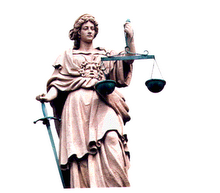This well-established and widely-respected Yearbook, is a primary source of information on significant and topical legal issues relating to the Palestinian territories. It provides, in a single annual volume, not only leading articles on topics of major interest to the international legal community, but also key legislation, court decisions, legal cases, treaties, reslolutions, special reports, and other relevant legal material translated from the original Arabic or Hebrew into English.
The Thirteenth Volume of the Palestine Yearbook of International Law, which is jointly published by Martinus Nijhoff Publishers and the Institute of Law at Birzeit University, is devoted to the theme of the Wall and especially to the Advisory Opinion of the International Court of Justice. It provides a background into the legal arguments and a legal analyses on aspects of the Advisory Opinion and the legal obligations it imposes on third states. The obligations on the European Union under the European Community’s Terms of Preferential Trade with Israel are dealt with in particular. Finally, the legal position of children detained or imprisoned by Israel is explored from the perspective of the UN human rights system. The documents related to the Advisory Opinion are assembled in a Special Dossier and preceded by a substantial introduction. The documentary section includes Israeli legislation and judicial cases and a selection of international legal documents and reports, mostly from UN bodies and agencies. A final section comprises books reviews on various aspects of Palestine and the law.
This volume includes the following articles, documents, and book reviews:
I. Articles
1. John Strawson, British (and International) Legal Foundations for the Israeli Wall: International Law and Multi-colonialism,
2. François Dubuisson, The Implementation of the ICJ Advisory Opinion concerning the Legal Consequences of the Construction of a Wall in the Occupied Palestinian Territory,
3. Stephanie Koury, Why this Wall?
4. Victor Kattan, The Wall, Obligations Erga Omnes and Human Rights: The Case for Withdrawing the European Community’s Terms of Preferential Trade with Israel
5. Catherine Cook, Adam Hanieh and Adah Kay, Discrimination and Denial, Israel and Palestinian Child Political Prisoners: A case study of Israel's manipulation of the U.N. human rights system
II. Special Dossier
The Advisory Opinion of the International Court of Justice on the
Legal Consequences of the Construction of a Wall in the Occupied Palestinian Territory
Introduction: A Vindication of Palestinian Rights………………………... Jean Allain
1. Written Statement submitted by Palestine to the International Court Of Justice with respect the Request for an Advisory Opinion regarding Legal Consequences of the Construction of a Wall in the Occupied Palestinian Territory (30 January 2004)
2. Advisory Opinion of the International Court of Justice on the Legal Consequences of the Construction of a Wall in the Occupied Palestinian Territory (9 July 2004)
3. Map 1 – The Wall in Occupied Palestinian Territory including East Jerusalem
4. Map 2 – Historical Division of Palestine
5. Map 3 – The Wall in the West Bank
6. Map 4 – The Wall and Israeli Settler Population in the West Bank
7. Map 5 – The Wall and Water Resources in the West Bank
III. Book Reviews
1. Palestine, Palestinians and International Law
Francis A. Boyle and
2. International Law in the Middle East, Closer to Power than to Justice
Jean Allain
Reviewed by………………………………………………………Maha Najjar
3. Stolen Youth: The Politics of Israel’s Detention of Palestinian Children
Catherine Cook, Adam Hanieh, Adah Kay
Reviewed by…...............................................................Farkhanda Zia Mansoor
4. Records of Dispossession: Palestinian Refugee Property and the Arab-Israeli Conflict
Michael Fishbach and
5. Access Denied: Palestinian Land Rights in Israel
Hussein Abu Hussein and Fiona McKay
Reviewed by …………………Erin Alexandria Brown and Anna Mackowiak
http://www.brill.nl/default.aspx?partid=18&pid=24080
The Thirteenth Volume of the Palestine Yearbook of International Law, which is jointly published by Martinus Nijhoff Publishers and the Institute of Law at Birzeit University, is devoted to the theme of the Wall and especially to the Advisory Opinion of the International Court of Justice. It provides a background into the legal arguments and a legal analyses on aspects of the Advisory Opinion and the legal obligations it imposes on third states. The obligations on the European Union under the European Community’s Terms of Preferential Trade with Israel are dealt with in particular. Finally, the legal position of children detained or imprisoned by Israel is explored from the perspective of the UN human rights system. The documents related to the Advisory Opinion are assembled in a Special Dossier and preceded by a substantial introduction. The documentary section includes Israeli legislation and judicial cases and a selection of international legal documents and reports, mostly from UN bodies and agencies. A final section comprises books reviews on various aspects of Palestine and the law.
This volume includes the following articles, documents, and book reviews:
I. Articles
1. John Strawson, British (and International) Legal Foundations for the Israeli Wall: International Law and Multi-colonialism,
2. François Dubuisson, The Implementation of the ICJ Advisory Opinion concerning the Legal Consequences of the Construction of a Wall in the Occupied Palestinian Territory,
3. Stephanie Koury, Why this Wall?
4. Victor Kattan, The Wall, Obligations Erga Omnes and Human Rights: The Case for Withdrawing the European Community’s Terms of Preferential Trade with Israel
5. Catherine Cook, Adam Hanieh and Adah Kay, Discrimination and Denial, Israel and Palestinian Child Political Prisoners: A case study of Israel's manipulation of the U.N. human rights system
II. Special Dossier
The Advisory Opinion of the International Court of Justice on the
Legal Consequences of the Construction of a Wall in the Occupied Palestinian Territory
Introduction: A Vindication of Palestinian Rights………………………... Jean Allain
1. Written Statement submitted by Palestine to the International Court Of Justice with respect the Request for an Advisory Opinion regarding Legal Consequences of the Construction of a Wall in the Occupied Palestinian Territory (30 January 2004)
2. Advisory Opinion of the International Court of Justice on the Legal Consequences of the Construction of a Wall in the Occupied Palestinian Territory (9 July 2004)
3. Map 1 – The Wall in Occupied Palestinian Territory including East Jerusalem
4. Map 2 – Historical Division of Palestine
5. Map 3 – The Wall in the West Bank
6. Map 4 – The Wall and Israeli Settler Population in the West Bank
7. Map 5 – The Wall and Water Resources in the West Bank
III. Book Reviews
1. Palestine, Palestinians and International Law
Francis A. Boyle and
2. International Law in the Middle East, Closer to Power than to Justice
Jean Allain
Reviewed by………………………………………………………Maha Najjar
3. Stolen Youth: The Politics of Israel’s Detention of Palestinian Children
Catherine Cook, Adam Hanieh, Adah Kay
Reviewed by…...............................................................Farkhanda Zia Mansoor
4. Records of Dispossession: Palestinian Refugee Property and the Arab-Israeli Conflict
Michael Fishbach and
5. Access Denied: Palestinian Land Rights in Israel
Hussein Abu Hussein and Fiona McKay
Reviewed by …………………Erin Alexandria Brown and Anna Mackowiak
http://www.brill.nl/default.aspx?partid=18&pid=24080

